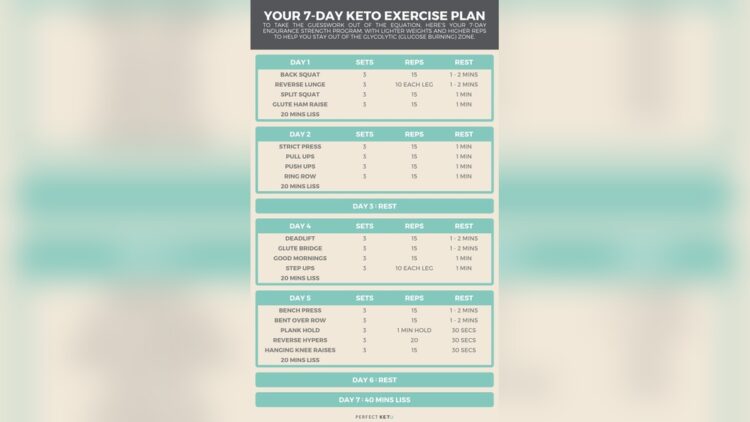Weight loss can be challenging for individuals with depression. However, it is possible to achieve weight loss goals by focusing on maintaining a healthy diet and incorporating regular physical activity, which can help improve mood and reduce symptoms of depression.
Making small, sustainable lifestyle changes and seeking support from healthcare professionals can also play a crucial role in achieving weight loss success.
Recognizing The Connection Between Weight Loss And Depression
Understanding the link between weight loss and depression is crucial for those who are struggling with both. Depression is a mental health condition that affects millions of people worldwide, and its impact on weight loss can be significant. In this article, we will explore the connection between weight loss and depression, delve into the impact of depression on weight loss, and uncover the factors contributing to weight gain during depression. By recognizing this connection, individuals can take steps towards managing their mental health and achieving their weight loss goals.
Impact Of Depression On Weight Loss
The presence of depression can have a profound impact on an individual’s ability to lose weight. Depression often leads to a decrease in appetite, which can result in significant weight loss. Additionally, depression can cause a lack of motivation and energy, making it difficult to engage in physical activity or follow a consistent exercise routine. This combination of reduced appetite and lower physical activity levels can contribute to weight loss in individuals with depression.
On the other hand, there are instances where depression may lead to weight gain instead. Many individuals turn to food as a coping mechanism when experiencing depressive symptoms. Emotional eating, characterized by consuming high-calorie and unhealthy foods to fulfill emotional needs, can lead to weight gain. Furthermore, certain antidepressant medications commonly prescribed to manage depression can cause weight gain as a side effect. It is crucial to recognize these factors and seek appropriate support to manage weight gain during depression.
Factors Contributing To Weight Gain During Depression
Several factors contribute to weight gain in individuals struggling with depression. Firstly, emotional eating plays a significant role. When feelings of sadness, stress, or anxiety arise, individuals may turn to food as a form of comfort. This often involves consuming high-calorie, sugary, and fatty foods that provide temporary relief but contribute to weight gain in the long run.
Additionally, the lack of motivation and energy associated with depression can lead to a sedentary lifestyle. Individuals may spend more time engaging in sedentary activities such as watching TV or browsing the internet, which decreases their overall physical activity levels. Coupled with emotional eating, this sedentary behavior can quickly lead to weight gain.
While some antidepressant medications can cause weight gain as a side effect, it is important to note that not all individuals experience this effect. However, if weight gain is a concern, individuals should consult with their healthcare provider to explore alternative medications or strategies to manage the side effects.
Understanding The Challenges Of Weight Loss With Depression
Understanding the challenges of weight loss while dealing with depression is crucial. The emotional turmoil and lack of motivation can make it difficult to maintain a healthy lifestyle and reach fitness goals. It’s important to seek professional help and build a support system to overcome these obstacles and achieve successful weight loss.
Understanding the Challenges of Weight Loss with Depression Lack of motivation and energy When it comes to weight loss, lack of motivation and energy can be significant challenges for individuals struggling with depression. Depression can zap away the motivation to engage in physical activity and make it feel nearly impossible to gather enough energy to even start a workout session. Emotional eating and overeating Another hurdle faced by individuals with depression is emotional eating and overeating. Many people turn to food as a way to cope with their emotional distress. This can lead to a cycle of overeating, followed by guilt and shame, which only exacerbates the symptoms of depression and makes weight loss even more challenging. To overcome these obstacles and successfully navigate the weight loss journey while dealing with depression, it is important to implement strategies that address the lack of motivation and energy as well as emotional eating and overeating. Strategies to overcome lack of motivation and energy: 1. Start small: Begin with short, low-intensity workouts that require minimal energy. Gradually increase the duration and intensity as you build up stamina and motivation. 2. Set achievable goals: Break down your weight loss goals into small, attainable milestones. This will provide a sense of achievement and keep you motivated to continue. 3. Seek support: Find a workout buddy or join a support group to help keep you accountable and motivated. Engaging in physical activity with others can provide the extra push you need to stay motivated. 4. Create a routine: Establish a consistent workout routine. Having a regular schedule can help overcome the lack of motivation by making physical activity a habit. Strategies to overcome emotional eating and overeating: 1. Find alternative coping mechanisms: Explore non-food-related ways to manage emotions such as journaling, practicing mindfulness, or engaging in hobbies that bring you joy. 2. Seek professional help: Working with a therapist or counselor who specializes in both depression and weight management can provide valuable guidance and support. 3. Develop a mindful eating practice: Pay attention to your body’s hunger and fullness cues. Practice mindful eating by savoring each bite and being present in the moment. 4. Stock a healthy pantry: Remove tempting, unhealthy foods from your home and stock it with nutritious options. Having healthy choices readily available can help prevent impulsive emotional eating. Remember, the key to successful weight loss with depression is to prioritize self-care and take a compassionate approach. Each individual’s journey is unique, and it’s important to be patient and kind to yourself throughout the process. By implementing these strategies and seeking support when needed, you can overcome the challenges of weight loss with depression and achieve your health goals.Developing A Supportive Mindset
Developing a supportive mindset is crucial for weight loss with depression. By fostering a positive outlook and focusing on self-care, individuals can overcome challenges and maintain a healthy lifestyle. Keep reading to discover effective strategies and useful tips for navigating this journey.
Developing a Supportive Mindset When it comes to weight loss, it can be a challenging journey, especially for those who are also dealing with depression. However, developing a supportive mindset is crucial in order to achieve your health and wellness goals. By changing negative self-talk and setting realistic goals, you can create a positive environment that encourages progress and success. In this section, we will explore how these two factors play a significant role in your weight loss journey with depression. Changing negative self-talk Negative self-talk can hinder your progress and make it difficult to stay motivated. It’s important to identify and challenge these negative thoughts in order to create a more supportive mindset. By practicing self-compassion and reframing negative thoughts into positive ones, you can improve your self-esteem and belief in your ability to achieve your weight loss goals. Here are some techniques to help you change your negative self-talk: 1. Practice positive affirmations: Write down positive statements about yourself and read them aloud each day. For example, you can say, “I am capable of achieving my weight loss goals” or “I am deserving of a healthy lifestyle.” 2. Surround yourself with positive influences: Engage with people who uplift and support you on your weight loss journey. Avoid negative environments or individuals who may discourage you from reaching your goals. Setting realistic goals Setting unrealistic goals can lead to frustration and disappointment, especially when you’re facing the challenges of depression. It’s essential to set achievable and realistic goals that align with your current capabilities and circumstances. By doing so, you can maintain a positive mindset and celebrate small victories along the way. Consider these tips when setting your weight loss goals: 1. Start with small steps: Break your ultimate goal into smaller, more manageable milestones. This allows you to track your progress and stay motivated throughout your journey. 2. Focus on non-scale victories: Instead of solely focusing on the number on the scale, celebrate non-scale victories such as increased energy levels, improved mood, or fitting into smaller clothing sizes. These accomplishments can provide a significant boost to your self-confidence. 3. Seek professional guidance: If you’re unsure about setting realistic goals, consider consulting with a healthcare professional or a registered dietitian. They can provide you with personalized recommendations and help you create a plan tailored to your unique needs. In conclusion, developing a supportive mindset is crucial for weight loss with depression. By changing negative self-talk and setting realistic goals, you can create a positive environment that promotes progress and success. Remember to be kind to yourself and celebrate every achievement, no matter how small. With the right mindset, you can overcome the challenges and make significant strides towards a healthier and happier you.Creating An Effective Weight Loss Plan
Creating an effective weight loss plan can be challenging, especially when dealing with depression. However, with careful planning, regular exercise, and a balanced diet, it is possible to achieve weight loss goals while managing the effects of depression.
Incorporating Physical Activity
Regular physical activity is a crucial component of an effective weight loss plan when dealing with depression. Engaging in physical activity not only helps burn calories but also supports mental well-being by releasing endorphins that boost mood and reduce stress.Adopting A Healthy Diet
When it comes to weight loss, adopting a healthy diet is vital, especially for individuals struggling with depression. A well-balanced diet provides essential nutrients while aiding in weight management and improving mental health. Start by incorporating whole foods, such as fruits, vegetables, lean proteins, and whole grains, into your daily meals.Eating Mindfully And Moderation
Practicing mindful eating and moderation play a crucial role in a successful weight loss journey. Avoid mindlessly consuming food while distracted, and instead, focus on each bite and listen to your body’s hunger and fullness cues. Be mindful of portion sizes and aim to eat until you are comfortably satisfied, rather than stuffed.Stay Hydrated
Maintaining proper hydration is often overlooked, but it is essential for overall health and weight loss. Drinking an adequate amount of water throughout the day helps control cravings, supports digestion, and prevents overeating. It is recommended to consume at least eight glasses of water daily.Seek Professional Guidance
When embarking on a weight loss journey with depression, it is beneficial to seek professional guidance. Consulting with a registered dietitian or nutritionist can help tailor a diet plan specifically suited to your needs and preferences. Additionally, a mental health professional can offer guidance and support for managing depression while working towards weight loss goals.Conclusion
Creating an effective weight loss plan while dealing with depression requires a holistic approach. By incorporating regular physical activity, adopting a healthy diet, practicing mindful eating, staying hydrated, and seeking professional guidance, individuals can navigate their weight loss journey with depression successfully. Remember, it is crucial to prioritize self-care and be patient and kind to yourself throughout the process.Building A Strong Support System
Weight loss with depression is a challenging journey, but building a strong support system can make a significant difference. Surrounding yourself with understanding friends, family, and professionals can provide the encouragement, guidance, and motivation needed for success.
Dealing with weight loss while battling depression can be an incredibly challenging journey. Although it may seem overwhelming, you don’t have to go through it alone. Building a strong support system is crucial to your success and well-being. By seeking professional help, engaging with a support group or community, you can find the encouragement, guidance, and understanding you need to achieve your weight loss goals.Seeking Professional Help
One of the first steps in building a strong support system for weight loss with depression is seeking professional help. The guidance and expertise of a healthcare provider, such as a therapist or psychiatrist, can make a significant difference in your journey. They can help you navigate the complexities of managing both your weight and depression, providing you with tailored strategies and treatments. Additionally, a healthcare professional can monitor your progress, making any necessary adjustments along the way to ensure your success.Engaging With A Support Group Or Community
In addition to seeking professional help, engaging with a support group or community can provide you with an invaluable network of individuals who understand the unique challenges you face. These individuals can offer you empathy, advice, and first-hand experiences that can help you overcome hurdles and stay motivated. Consider joining an online forum, social media group, or attending local support group meetings where you can share your triumphs and setbacks, celebrate each other’s progress, and find the encouragement you need to keep going.When engaging with a support group or community, it’s important to find a safe and inclusive environment where everyone is respectful and supportive. You want to surround yourself with individuals who uplift and inspire you rather than bring you down. Remember, you are not alone, and there are others out there who can relate to your struggles and offer you guidance on your weight loss journey.
Building a strong support system is key to weight loss success, especially when dealing with depression. Seek professional help and engage with a support group or community to receive the encouragement, guidance, and understanding you need. Remember, you don’t have to face these challenges alone. Together, we can overcome obstacles and achieve our goals.
Frequently Asked Questions On Weight Loss With Depression
Can Depression Cause Weight Loss?
Depression can often lead to a loss of appetite, resulting in weight loss. The emotional impact can affect eating habits.
How Does Depression Affect Weight Loss Efforts?
Depression makes it difficult to stay motivated, leading to decreased physical activity and poor diet choices.
Is It Possible To Lose Weight While Dealing With Depression?
Yes, weight loss is possible with depression. It’s crucial to seek professional help, improve self-care, and create a realistic plan.
Conclusion
Losing weight while dealing with depression can be a challenging journey, but it’s important to remember that it’s not impossible. By taking small, sustainable steps and adopting a holistic approach that includes seeking professional help, making healthier food choices, and engaging in physical activities you enjoy, you can gradually achieve your weight loss goals.
Remember, self-care and self-compassion are essential in this process. Stay motivated and take it one day at a time!
{ “@context”: “https://schema.org”, “@type”: “FAQPage”, “mainEntity”: [ { “@type”: “Question”, “name”: “Can depression cause weight loss?”, “acceptedAnswer”: { “@type”: “Answer”, “text”: “Depression can often lead to a loss of appetite, resulting in weight loss. The emotional impact can affect eating habits.” } } , { “@type”: “Question”, “name”: “How does depression affect weight loss efforts?”, “acceptedAnswer”: { “@type”: “Answer”, “text”: “Depression makes it difficult to stay motivated, leading to decreased physical activity and poor diet choices.” } } , { “@type”: “Question”, “name”: “Is it possible to lose weight while dealing with depression?”, “acceptedAnswer”: { “@type”: “Answer”, “text”: “Yes, weight loss is possible with depression. It’s crucial to seek professional help, improve self-care, and create a realistic plan.” } } ] }









Leave a Reply